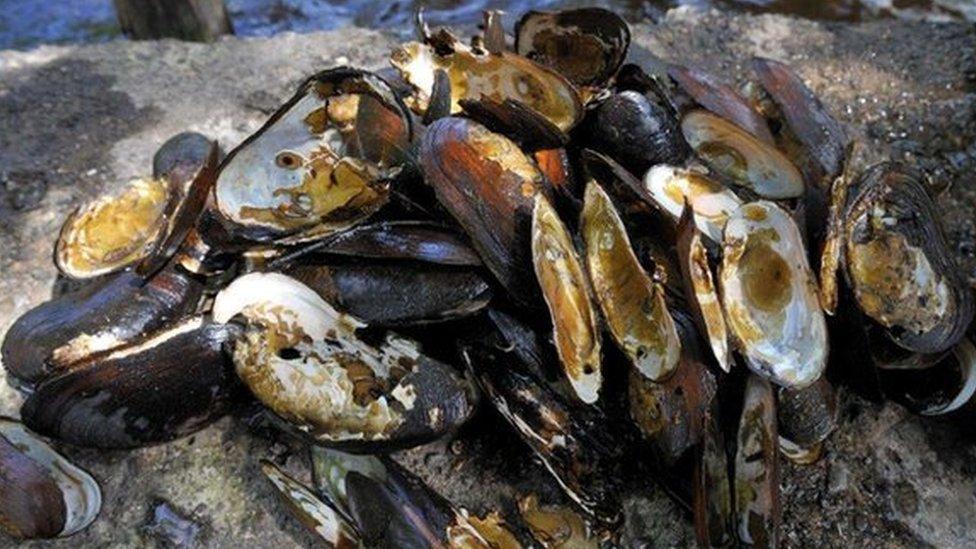More than 100 pearl mussels poached from Sutherland river
- Published

Poaching of freshwater pearl mussels has been a problem on other Highlands rivers
Police are investigating the poaching of freshwater pearl mussels at a Highlands river.
The remains of more than 100 of the protected shellfish were found on the upper reaches of the River Oykel in Sutherland on 4 July.
Police believe the poaching happened some time over the last two months.
The mussels were forced open in the off chance of finding a pearl. There have been similar incidents on other Highlands rivers in recent years.
Police Scotland wildlife crime officer, Dominic Corcoran, said freshwater pearl mussels played a crucial part in a river's ecosystem.
He said: "Anyone disturbing, killing or possessing them is committing a criminal offence and incidents like this are extremely disappointing to everyone who works to conserve this protected species."
Dramatic declines
The officer added: "We appreciate that this is a fairly wide timescale but I would urge anyone who believes they may have seen suspicious activity around the River Oykel in recent months to let us know.
"Whoever is responsible for removing them would have needed to spend some considerable time to remove this number of mussels so please think back and let us know if you believe you can assist."
Scottish Natural Heritage has previously warned that freshwater pearl mussels may be extinct from several rivers in Scotland due to poaching.
Pearl mussels are similar in shape to common marine mussels, but can grow larger and live for up to 130 years in fast-flowing rivers.
Early in their life cycle they live harmlessly on the gills of young salmon and trout.
Poaching, loss of habitat and pollution are among the reasons for dramatic declines in their numbers.
Scotland's Highlands and islands are among Britain's last strongholds for the critically endangered species.
Julius Caesar's admiration of pearl mussels is cited by his biographer as a motive for the first Roman invasion of Britain in 55BC.
- Published15 June 2018
